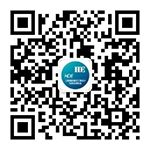Beijing, Shanghai Boost Preventive Efforts to Fight Imported Infections
Beijing and Shanghai, China’s major entry ports for inbound travelers, have beefed up preventive measures amid the increasing number of imported infection cases of the novel coronavirus.
At a conference on COVID-19 control and prevention in Beijing on Monday, the city said it will conduct a thorough examination of those who are now undergoing home quarantine, according to Beijing Daily newspaper.
The conference, attended by Beijing’s Party Chief Cai Qi and Mayor Chen Jining, pointed out that the city is facing grave risk of the importation of the disease as the pandemic quickly spreads in other countries.
All people currently under the 14-day home quarantine in Beijing must get an overall checkup, and the health observation and related management must be fully implemented, the city’s leading antivirus group said.
Regardless of their departure places, the group said all inbound travelers to Beijing must undergo quarantine and receive nucleic acid tests, reiterating a rule introduced on March 25.
“The 14-day quarantine for medical observation is absolutely necessary,” said Pang Xinghuo, deputy director of Beijing’s center for disease control and prevention.
Pang said on Tuesday that two travelers, who returned from Serbia to Beijing on March 19, recently tested positive for the virus during their quarantine period.
“Their body temperatures were normal when they arrived in Beijing,” he said. “They started to show symptoms on the 9th and 10th day respectively after arrival.”
As of noon on Tuesday, the capital had reported 164 imported novel coronavirus cases, with 20 people recovered and discharged from the hospital, according to the city’s health commission.
In Shanghai, the number of imported cases of COVID-19 reached 170 by Monday, replacing Beijing as the city with the most imported infection cases on the mainland.
The metropolis has been strengthening rules for inbound travelers since early March.
Currently, all inbound travelers must go through temperature checks, fill in health cards, take nucleic acid tests for the virus and undergo a 14-day quarantine.
The most recent update of the rules was implemented on Saturday, which requires most inbound travelers to be quarantined at designated venues.
Exceptions for quarantine at home are made for seniors, juveniles, pregnant women and the disabled if they test negative for the virus and have appropriate quarantine quarters.
Source: China Daily



